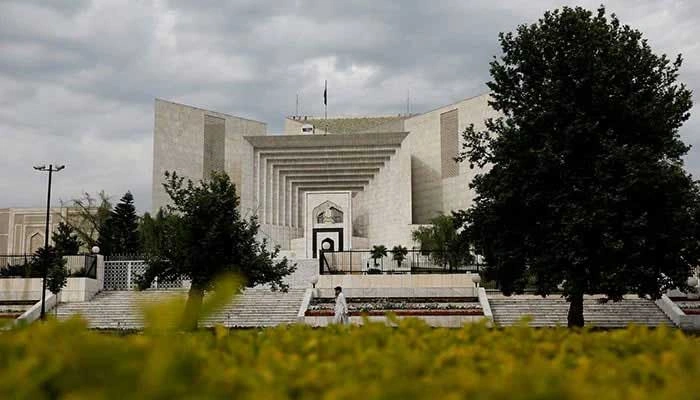In a major judicial reshuffle, the Judicial Commission of Pakistan (JCP) approved the elevation of six high court judges to the Supreme Court. The decision, taken on February 10, 2025, came despite a boycott by Pakistan Tehreek-e-Insaf (PTI) lawmakers and two senior Supreme Court judges. This move aims to address vacancies in the apex court but has sparked political and legal debates over judicial appointments.
JCP Approves Nominations
A meeting of the JCP, chaired by Chief Justice of Pakistan (CJP) Yahya Afridi, finalized the nominations. The commission, through a majority vote, approved six judges for elevation. The appointed judges are:
- Justice Muhammad Hashim Khan Kakar
- Justice Muhammad Shafi Siddiqui
- Justice Salahuddin Panhwar
- Justice Ishtiaq Ibrahim
- Justice Shakeel Ahmad
- Justice Aamer Farooq
Additionally, the JCP appointed Justice Miangul Hassan Aurangzeb from the Islamabad High Court (IHC) as an Acting Judge of the Supreme Court.
The commission held this meeting earlier than planned, rescheduling it from February 11 to February 10. The JCP, recently restructured under the 26th Constitutional Amendment, now includes four parliamentarians in the selection process.
PTI’s Boycott and Objections
PTI leaders Barrister Gohar Ali Khan and Senator Ali Zafar, along with SC judges Justice Mansoor Ali Shah and Justice Munib Akhtar, boycotted the meeting. PTI argued that the session should have been delayed until legal challenges against the 26th Amendment were resolved.
Barrister Gohar told reporters that PTI had already filed petitions questioning the amendment. Since these cases were pending, PTI believed the meeting should not have proceeded. However, a vote was conducted, and the majority decided to move forward.
Senator Zafar raised another concern, stating that the issue of judicial seniority remained unsettled. He argued that addressing this matter before making new appointments was essential. Despite these objections, the JCP did not postpone the meeting.
Read: Boat Carrying 65 Capsizes Off Libyan Coast
Dispute Over Judicial Transfers
The elevation of judges is part of a broader reshuffle that has stirred controversy. Earlier this month, the JCP requested nominations from all high courts, asking for a list of five senior judges from each.
Initially, the Islamabad High Court (IHC) submitted three names: Chief Justice Aamer Farooq, Justice Mohsin Akhtar Kayani, and Justice Miangul Hassan Aurangzeb. However, Lahore High Court’s Justice Sarfraz Dogar, along with two judges from Sindh High Court (SHC) and Balochistan High Court (BHC), were later transferred to the IHC. After his transfer, Justice Dogar was placed at the top of the IHC seniority list, making him eligible for Supreme Court nomination.
This change sparked opposition from five IHC judges, who argued that transferred judges should take a fresh oath under Article 194 of the Constitution. According to them, this would place Justice Dogar at the bottom of the IHC seniority list, making him ineligible for immediate elevation.
Ongoing Legal and Political Tensions
The JCP’s decision has further fueled tensions between the judiciary and political parties. PTI continues to oppose judicial appointments under the amended system, while senior judges raise concerns about the impact of transfers on seniority. With unresolved constitutional challenges and ongoing protests, the controversy surrounding judicial appointments is far from over.
Follow us on Google News, Instagram, YouTube, Facebook,Whats App, and TikTok for latest updates
